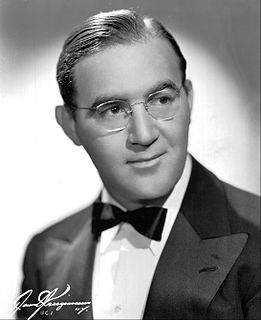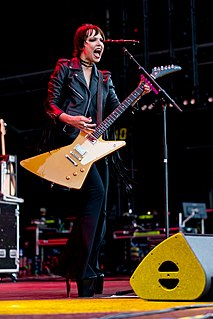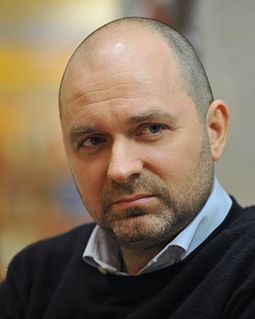A Quote by Jack Kerouac
In those days he really didn't know what he was talking about; that is to say, he was a young jailkid all hung-up on the wonderful possibilities of becoming a real intellectual, and he liked to talk in the tone and using the words, but in a jumbled way, that he had heard from 'real intellectuals.
Related Quotes
I think my first impression (of Bix Beiderbecke) was the lasting one. I remember very clearly thinking, 'Where, what planet, did this guy come from? Is he from outer space?' I'd never heard anything like the way he played-not in Chicago, no place. The tone-he had this wonderful, ringing cornet tone. He could have played in a symphony orchestra with that tone. But also the intervals he played, the figures-whatever the hell he did. There was a refinement about his playing. You know, in those days I played a little trumpet, and I could play all the solos from his records, by heart.
I've been talking a lot about how music chooses you because you can pinpoint when you had the epiphany that, 'Wow, I really want to do this.' But there's no real rhyme or reason about choosing to be in this industry. It's one of those things where there is no real guarantee; there is no real rulebook to follow.
Being a nerd, which is to say going too far and caring too much about a subject, is the best way to make friends I know. For me, the spark that turns an acquaintance into a friend has usually been kindled by some shared enthusiasm . . . At fifteen, I couldn't say two words about the weather or how I was doing, but I could come up with a paragraph or two about the album Charlie Parker with Strings. In high school, I made the first real friends I ever had because one of them came up to me at lunch and started talking about the Cure.
A more appropriate expansion is the statement "it is the responsibility of intellectuals to speak the truth and expose lies" a transcript of a talk to a writers conference in Australia in 1996, where I had been asked to talk on "writers and intellectual responsibility" - a question that I said I found "puzzling," because I knew of nothing to say about it beyond truisms, though these were perhaps worth affirming because they are "so commonly denied, if not in words, then in consistent practice."
I think, at some level, we see young people all over the country mobilizing around different issues, in which they're doing something that I haven't seen for a long time. And that is, they're linking issues together. You can't talk about police violence without talking about the militarization of society in general. You can't talk about the assault on public education unless you talk about the way in which capitalism defunds all public goods. You can't talk about the prison system without talking about widespread racism. You can't do that. They're making those connections.







































